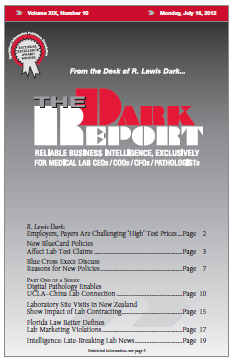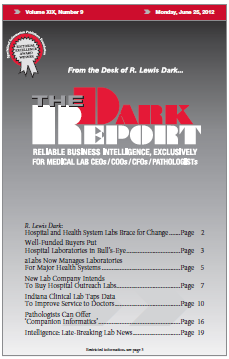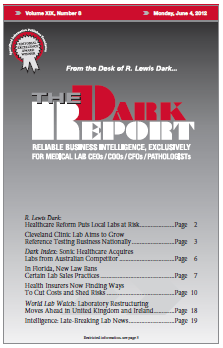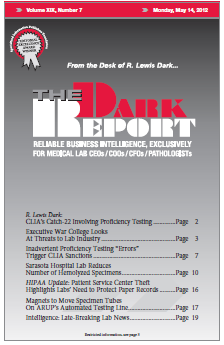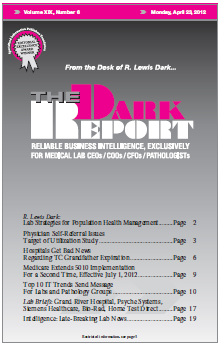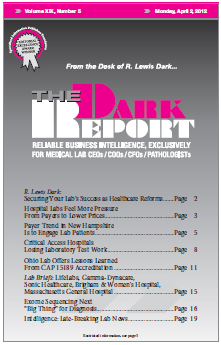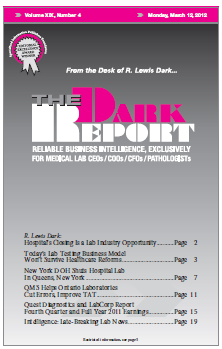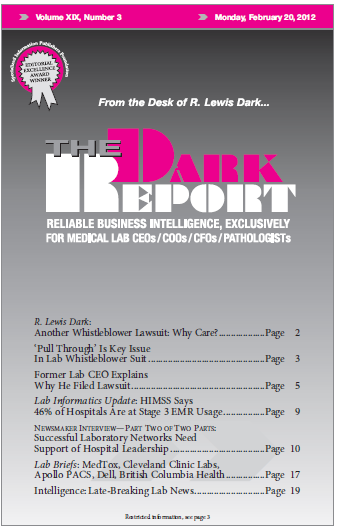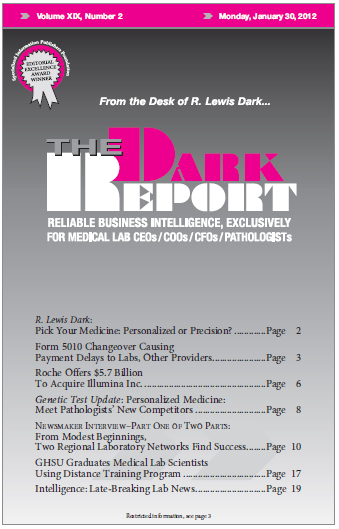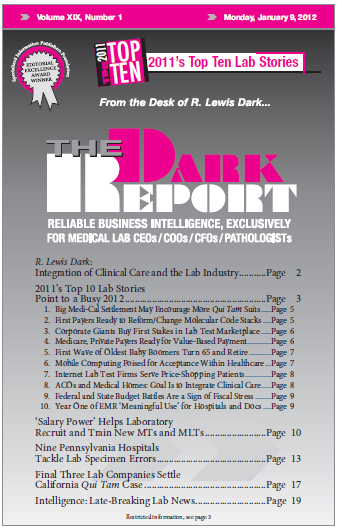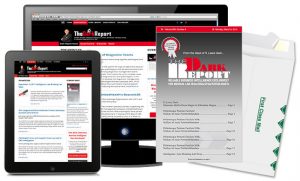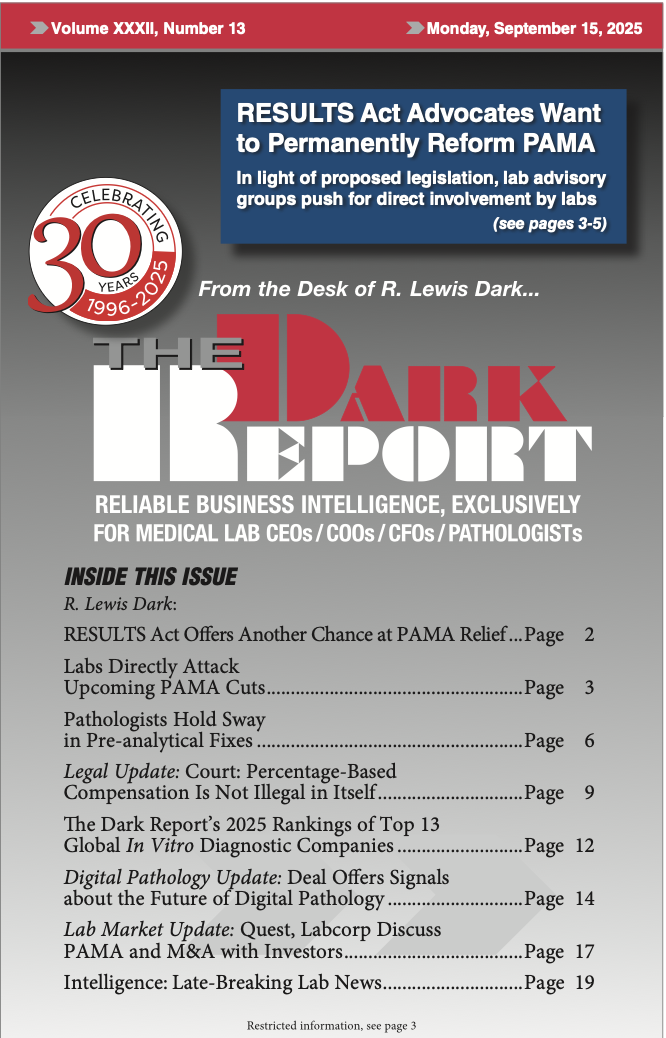Volume XIX No. 10 – July 16, 2012
In this issue:
BLUECARD CHANGES outlined here should be evaluated against the assumption that the motive behind the changes is to restrict the access of local labs to BlueCard patients while reducing the amount of reimbursement paid for lab testing as much as possible; this move has the potential to seriously undermine the financial underpinnings of hospital laboratories. Also, a pioneering digital pathology collaboration involves the pathology departments at the medical schools of the University of California, Los Angeles (UCLA) and Zhejiang University in Hangzhou, China.


